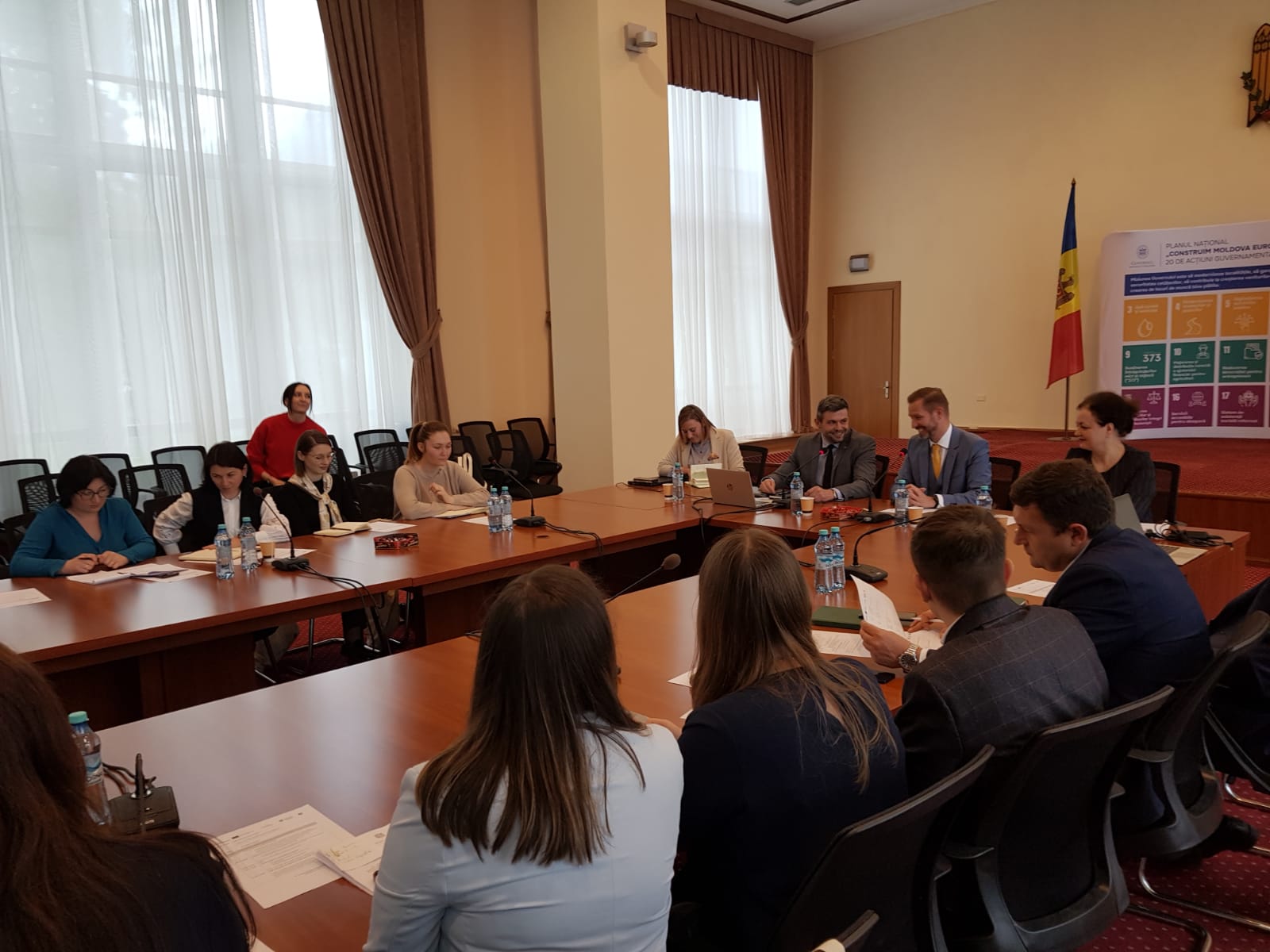©Danube Strategy Point
On 18 and 19 April 2024, in Chisinau, Danube Strategy Point in coordination with the EUSDR National Coordination team of the Republic of Moldova for the Danube Region Strategy organised an unfolding session, to provide support for capacity building to the representatives of the National Coordinator team, members of the Priority Area Coordinators and Steering Groups based in the Rep. of Moldova.
The agenda for this session was designed to enrich participants’ understanding of the implementation processes of the EUSDR. It aimed to showcase successful practices from the Danube Region Strategy and extend its influence to the regional and national levels.
During the two-day onsite session, various aspects concerning the embedding and funding of processes and projects in the EUSDR were discussed. The session also focused on implementation formats within the EUSDR, as well as communication strategies and branding for the EUSDR. These topics provided participants with the opportunity to enhance collaboration and minimise duplication in their day-to-day tasks.
The Republic of Moldova has shown a stronger commitment to implementing the EUSDR and is open to collaborating with stakeholders from other EUSDR participating countries. This proactive approach not only enhances participation and strengthens EUSDR governance at the national level but also facilitates access to funding mechanisms and supports EU project development.
Following the Unfolding EUSDR workshop for EUSDR key stakeholders in the Republic of Moldova in June 2023, this workshop was designed to showcase specific instances of interacting with EUSDR. It focused on engaging with both internal and external stakeholders, emphasising the importance of establishing a comprehensive framework to successfully implement activities, reach milestones, and fulfil objectives.
***
As a policy-action framework, the Danube Region Strategy addresses common challenges in an integrated manner through the alignment of policy, funding and actions on the ground. The implementation of the Strategy is ensured through collaborative formats for coordinating policies and actions beyond physical and institutional borders, such as policy-action processes, multi-stakeholder projects, and platforms for the exchange of practice.




